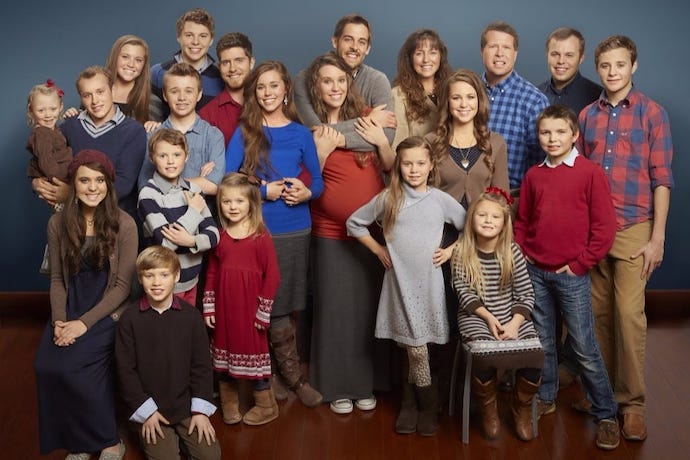In a blog post for The Gospel Coalition, Kevin DeYoung calls for conservative Christians to “have more children and disciple them like crazy,” a new culture war strategy that has me scratching my head. Not just because it’s sexist to tell mothers, who typically bear the disproportionate burden of child-care, to have “more children than you think you can handle.” And not just because it’s anti-child to “catechize” these small human beings to win a culture war. As offensive as that is, I’m confounded because this isn’t a new culture war strategy at all. For those of us who grew up in evangelicalism, we just called this the way we grew up.
As a child, I was catechized by youth group leaders, missionaries who had the zeal to add numbers to their newsletter reports—uh, I mean, for the Kingdom. Of course, as a child, I didn’t have the awareness of this culture war strategy, I simply believed I was being taught the love and grace of a good God. When I grew older and, gasp, developed my own critical thinking abilities, I began to see with more clarity the unspoken strategies put in place to ensure I stayed in the fold long after I departed from the shelter of my Christian bubble.
If you look at one of the leading influential voices of evangelical culture, Focus on the Family, you’ll see very clear guidelines on how exactly to do this. When kids are very young, it’s important to instill respect, which means blind obedience to authority figures.
“God gives us rules that we must obey.”
“Even if Mommy or Daddy can’t see what you are doing, God sees it.”
As they enter early Elementary years, erect a boundary between the Christian worldview, often referred to as “the biblical way,” and the secular world.
In late Elementary years, families are instructed to land the target: convert the child. Note this quote,
“The majority of people who trust Christ as Savior do so before they are teens.”
The National Association of Evangelicals notes a Barna study citing the average age of conversion, between 4-14.
Implicit in this reminder is the urgency to convert kids before they grow up—what I call the “Get-em-while-they’re-young” ideology. What happens to kids who grow into middle school age and teenagers, as their world slowly expands and they begin to see discrepancies between the doctrines they’re taught and their own experiences? How are Christian families to keep their kids toeing the line?
Christian families are taught to repeat two steps. Step 1: Obey God no matter what. In more sophisticated language this is taught as the doctrine of the Sovereignty of God, which is prevalent on the website of the Gospel Coalition on whose board Kevin DeYoung sits (along with 8 other men). Step 2: Continue fearing the secular world. This, of course, is the driving force behind the culture wars.
The culture wars did not arise out of a vacuum; the players are carefully cultivated in their homes and families, through curation of Christian-subculture content for kids, and via the meticulous wiring of children’s minds and spirituality to blind obedience and fears of departing from the imagined safety of Christian environments.
When DeYoung’s piece was published I was surprised to see a lot of fellow ex-evangelicals mock this piece by stating that this strategy will fail because their own story is that it did not work on them. Because they left.
I disagree. I think it works very well. As humans we’re molded by our environment. To deny this would be to ignore evidence from the scientists who study human behavior. Children are deeply impacted by the teachings they receive and the culture which shapes them. Those of us who grew up to be adults who questioned the assumptions of our childhood have done so at great mental anguish and we’ve paid a significant social cost. For every individual who was willing to pay that premium, there are many who stay and perpetuate the ideology of their childhood. And the culture war retains its warriors.
Kevin DeYoung’s new culture war strategy isn’t new, but it is effective. However, winning this war means everybody loses. A healthy and vibrant society doesn’t advance itself through the imposition of sectarian interests, but through meaningful engagement with a plurality of cultures and ideas.
Rather than catechize children to win culture wars, let’s raise them with values of respect and love of robust diversity. And the best way to teach kids to treat others in their community with humanity is to respect our children’s humanity—to give them agency and freedom to think, to feel, to learn with gentle guidance rather than authoritarian manipulation.
Nobody raises kids in a vacuum of values, but there’s a difference between leadership and indoctrination. The latter creates culture warriors. The former will raise responsible and engaged citizens for a healthy society.


